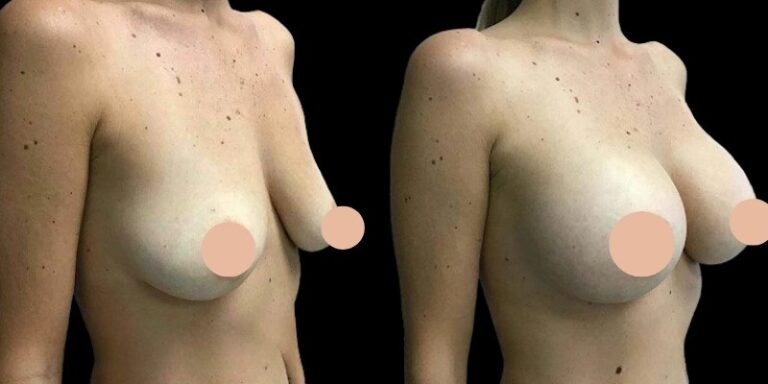Hearing is one of the most vital senses that connects us to the world. It allows us to communicate, experience music, enjoy conversations, and respond to our surroundings. However, many people often take their hearing health for granted until problems arise. Regular hearing protection, professional tests, and earwax prevention play crucial roles in maintaining long-term hearing wellness, especially among seniors.
Hearing protection services are not only for people working in noisy environments but also for anyone who wishes to safeguard their ears from long-term damage. Similarly, seniors require regular hearing tests to detect age-related hearing loss early, while proper earwax management ensures the ears remain clean and functional. Let’s explore the importance of these interconnected aspects of ear health and how they contribute to overall well-being.
Understanding the Importance of Hearing Protection
Noise-induced hearing loss is one of the most preventable types of hearing impairment, yet millions experience it due to prolonged exposure to loud sounds. Hearing protection services are designed to help individuals reduce noise exposure and preserve hearing ability. Whether you are attending concerts, using power tools, or working in a noisy factory, consistent use of hearing protection can make a significant difference.
Prolonged exposure to sounds above 85 decibels can cause irreversible damage to the delicate hair cells within the inner ear. These cells do not regenerate, which means that once hearing is lost, it cannot be naturally restored. Hearing protection services provide options such as custom earplugs, earmuffs, and advanced digital protection devices. These are designed to reduce harmful noise levels while allowing you to hear speech and environmental sounds clearly.
Modern hearing protection technology is no longer bulky or uncomfortable. Many custom-molded options are made from soft materials that fit perfectly into your ears, offering superior comfort even during long hours of use. Whether you are a musician, construction worker, or simply someone who enjoys peace and quiet, protecting your hearing today helps you maintain better ear health in the years ahead.
Why Seniors Need Regular Hearing Tests
Hearing loss among seniors is more common than most people realize. As we age, the tiny hair cells in the inner ear gradually deteriorate, leading to a natural decline in hearing ability. This age-related hearing loss, known as presbycusis, can make it difficult to understand speech, especially in noisy environments. Regular hearing tests for seniors can help detect early signs of hearing impairment before they significantly affect daily life.
Hearing test for seniors are simple, painless, and highly informative. Audiologists use various assessments such as pure-tone audiometry, speech recognition tests, and tympanometry to evaluate hearing ability and middle ear function. The results help determine whether hearing aids or other assistive devices might be beneficial.
Many seniors are unaware of the extent of their hearing loss because it occurs gradually. Family members often notice the issue first, observing that their loved ones ask for repetitions or increase TV volume frequently. Regular hearing tests can identify hearing loss early, enabling seniors to receive timely intervention.
Untreated hearing loss is not just an inconvenience; it can have serious implications for cognitive and emotional health. Studies have linked untreated hearing problems to social isolation, depression, and even cognitive decline. Early intervention through hearing aids or sound therapy can enhance communication, boost confidence, and improve overall quality of life.
The Role of Earwax in Hearing Health
Earwax, or cerumen, is a natural substance that protects the ear canal from dust, bacteria, and moisture. However, when earwax builds up excessively, it can block the ear canal and affect hearing clarity. Earwax prevention is a vital part of hearing care, ensuring that the ear canal remains clean and functional.
While earwax serves an important purpose, improper cleaning methods often lead to more harm than good. Using cotton swabs or other objects to clean the ears can push wax deeper into the ear canal, increasing the risk of impaction. Instead, safe earwax removal techniques performed by professionals are the best solution.
Audiologists and hearing care specialists offer earwax removal services using microsuction or irrigation methods that gently clear blockages without damaging the ear canal. Regular ear checkups also help monitor earwax buildup and prevent related issues such as tinnitus or temporary hearing loss.
To prevent earwax problems, avoid inserting objects into the ear and maintain ear hygiene by cleaning only the outer ear with a damp cloth. Hydration also helps regulate natural earwax production, keeping it soft and easy to expel.
How Hearing Protection Services Benefit Everyone
Hearing protection is often associated with industrial workers, but its benefits extend to musicians, athletes, and individuals exposed to everyday noise pollution. Services offered by hearing professionals can be customized to fit different lifestyles and noise levels.
For example, musicians can use specialized earplugs that lower sound intensity without distorting music quality. Motorcyclists and shooting enthusiasts benefit from digital hearing protection devices that instantly suppress loud bursts of noise while allowing softer sounds to pass through. Even individuals in urban environments can benefit from noise-reduction earwear that filters out traffic or construction sounds.
Employers are also increasingly recognizing the value of hearing protection for their staff. Providing protective gear and conducting regular hearing checks are essential steps in workplace safety programs. Companies that prioritize hearing protection not only comply with regulations but also support employee health and productivity.
Connecting Hearing Tests, Earwax Prevention, and Hearing Protection
Each component of hearing care—testing, protection, and wax prevention—works together to maintain optimal ear health. Regular hearing tests detect changes early, hearing protection prevents damage from noise, and earwax prevention ensures clear sound transmission.
For seniors, these combined practices are particularly beneficial. Regular tests can identify the need for hearing aids, while proper ear care helps maintain device performance. Clean ears enhance hearing aid functionality and comfort, allowing seniors to experience better clarity in conversations and daily interactions.
By incorporating these services into a routine health checkup, individuals can avoid the long-term effects of hearing loss and enjoy improved quality of life.
Signs You May Need a Hearing Test
If you frequently ask people to repeat themselves, turn up the television volume, or struggle to follow conversations in crowded places, it may be time for a hearing test. Other signs include ringing in the ears, muffled sounds, or discomfort after loud noise exposure.
Even mild hearing loss can affect your ability to engage in daily communication. A professional hearing test can identify whether the issue is caused by earwax, noise damage, or other medical conditions. Early detection ensures faster treatment and better outcomes.
How to Maintain Long-Term Hearing Health
Maintaining healthy hearing requires consistent care. Avoid exposure to loud noise whenever possible and use hearing protection in noisy environments. Schedule hearing tests at least once a year if you are over 50 or work in a noisy occupation. Keep your ears clean, but avoid inserting objects that can cause injury or push wax deeper.
Stay alert for any changes in hearing sensitivity or ear discomfort. Consult a hearing professional if you experience pain, ringing, or sudden hearing loss. Proper ear care practices, combined with professional support, can protect your hearing throughout your life.
Final Thoughts
Hearing protection services, hearing tests for seniors, and earwax prevention are essential components of ear health management. Protecting your hearing from noise damage, regularly checking your auditory performance, and keeping your ears clean all work together to ensure lasting sound clarity and communication comfort.
As hearing is an integral part of everyday life, investing time in its care is one of the most meaningful ways to enhance your overall well-being. Whether you are a senior seeking regular assessments or someone exposed to loud environments, professional hearing care services can help you enjoy every sound the world has to offer.
FAQs
1. How often should seniors get a hearing test?
Seniors should schedule a hearing test at least once a year to monitor any gradual changes in hearing ability and receive timely care if necessary.
2. What are the best hearing protection options for everyday use?
Custom earplugs or noise-reduction headphones are excellent for daily use. They reduce loud noise while allowing you to hear important sounds clearly.
3. Can earwax buildup cause hearing loss?
Yes, excessive earwax can block the ear canal and cause temporary hearing loss or discomfort until it is safely removed by a professional.
4. Is it safe to remove earwax at home?
It is best to avoid using cotton swabs or sharp objects. Professional earwax removal ensures your ears are cleaned safely without risk of injury.
5. Are hearing tests painful or uncomfortable?
Hearing tests are completely painless and typically take less than an hour. They involve listening to sounds through headphones and responding to tones or words.
6. What can I do to protect my hearing as I age?
Limit exposure to loud noise, wear hearing protection when needed, maintain good ear hygiene, and schedule regular hearing checkups with an audiologist.


